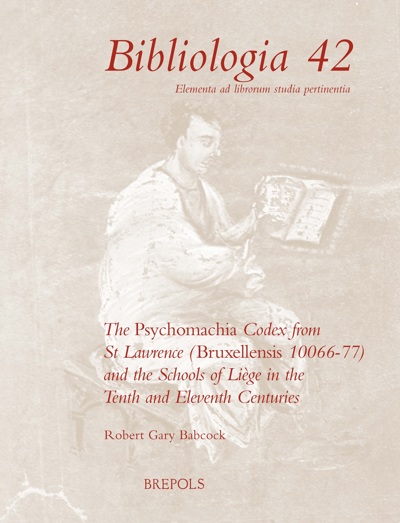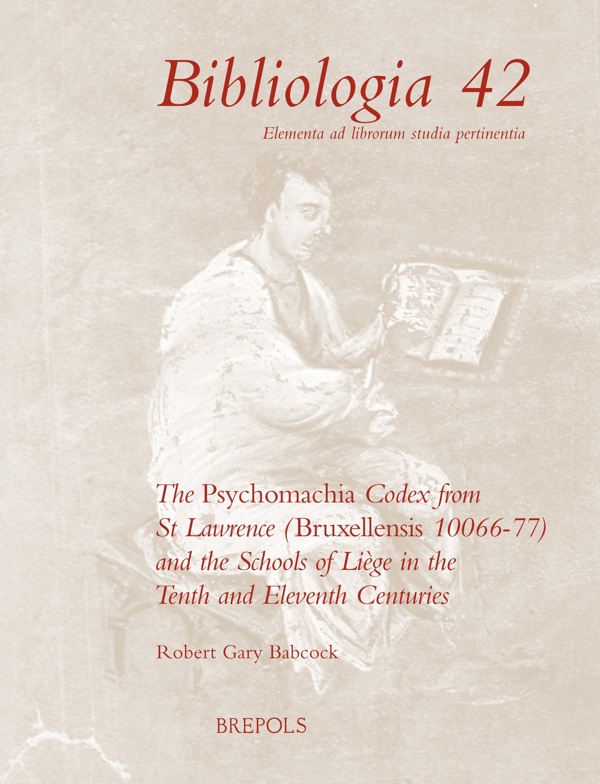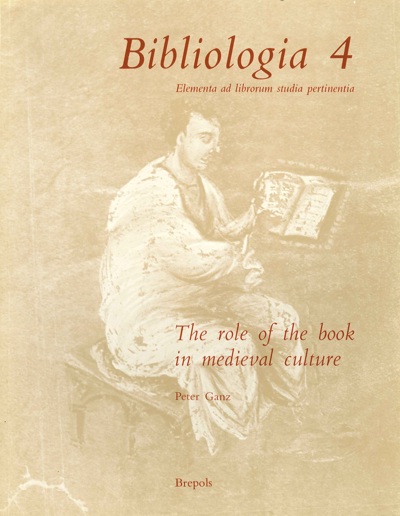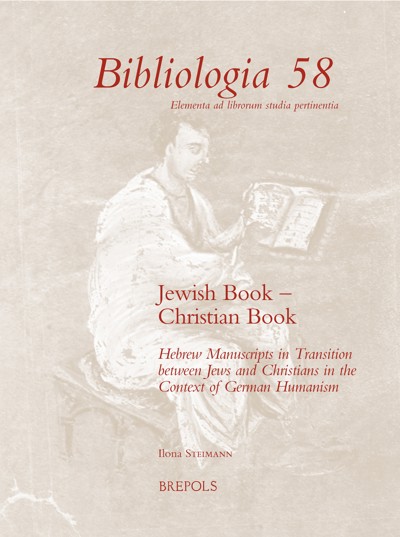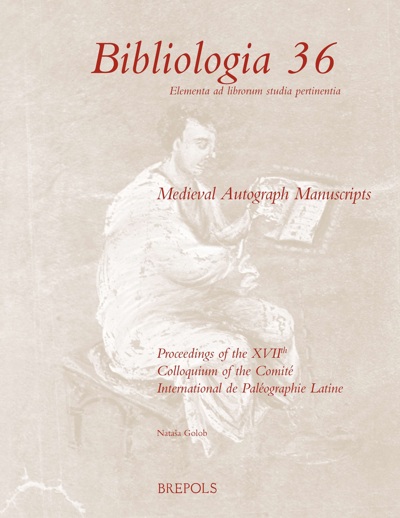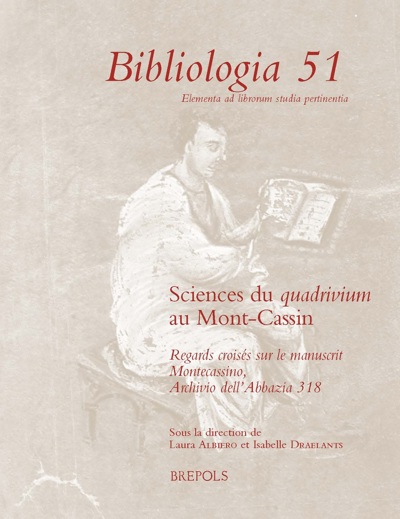
The 'Psychomachia' Codex from St. Lawrence (Bruxellensis 10066-77) and the Schools of Liège in the Tenth and Eleventh Centuries
Robert G. Babcock
- Pages: 328 p.
- Size:210 x 270 mm
- Illustrations:12 b/w
- Language(s):English
- Publication Year:2017
- € 85,00 EXCL. VAT RETAIL PRICE
- ISBN: 978-2-503-56871-3
- Paperback
- Available
« Non seulement par son objet même – l’histoire intellectuelle et culturelle des Xe et XIe s. qui, pour le pays de Liège, représentent un apogée –, mais également par la profondeur de l’érudition, la rigueur de la démonstration, et l’élégance du style, l’ouvrage que le professeur Babcock nous présente aujourd’hui est tout à fait digne d’éloges. » (Lucien Reynhout, dans: Cahiers de Civilisation Médiévale, 240/60, 2017, p. 385)
"La monografia si configura come lo studio più approfondito e aggiornato in circolazione per il codice Bruxellensis 10066-77, ricollocato nel suo contesto d’utilizzo nei secoli x e xi. Robert G. Babcock ha il merito di riportare l’attenzione sulla regione di Liegi in questi secoli, feconda per la cultura dei personaggi che la abitarono e per la tradizione dei testi latini, a proposito della quale è auspicabile che questo volume diventi il punto di partenza per gli studi successivi in materia." (Angela Cossu, in : Archivium Latinitatis Medii Aevi, Tome 75, 2017, p. 489)
« En rediscutant la position de Liège dans ce réseau intellectuel, l’étude de R.G.B. se révèle aussi importante pour les chercheurs de cette région que pour tous ceux qui travaillent sur l’histoire de l’éducation médiévale. » (Jay Diehl, dans Le Moyen Âge, 1/124, 2018, p. 181)
Robert Babcock is Professor of Classics at the University of North Carolina, Chapel Hill. A former fellow of the Alexander von Humboldt-Stiftung and the Flemish Academic Centre, he is a Foreign Fellow of the Royal Flemish Academy of Belgium. His research interests include ancient literature and its transmission, Medieval Latin, and manuscript studies.
This monograph focuses on Brussels, Royal Library, MS 10066-77, a tenth-century volume comprised of illustrated copies of Prudentius’ Psychomachia and the bestiary known as the Physiologus, to which tenth- and eleventh-century readers added a dozen short school texts. Largely for its illustrations, the manuscript has been considered a monument of Ottonian illumination and one of the principal treasures of the Royal Library in Brussels. The allure of its illustrated texts resulted in inadequate attention to the minor additions to the volume. This study reveals that these have a coherent origin (in Liège) and purpose (the study and teaching of allegory); and that they provide detailed evidence for teaching in the Liège schools of the period. Among the additions are philosophical, mathematical, prosodiacal, and lexical works. These can be specifically related to the studies of Liège writers of the tenth and eleventh centuries, and evidence is presented showing that some of these writers demonstrably used this very manuscript. A Latin glossary is among the most interesting additions, as it preserves a record of a local Latin vocabulary used by Liège writers of the period. The monograph concludes with a survey of tenth- and eleventh-century writers from Liège, and what ancient texts they knew. A comparison of their common reading culture, supplemented by evidence from surviving manuscripts and from medieval booklists, allows a fuller picture of the texts that were known and taught in the Liège schools at the time, and provides a new basis for assessing the teaching in these schools.
Table of Contents
Abbreviations
Ch. 1. ‘Liège, a second Athens’
Ch. 2. Description of Bruxellensis 10066-77
Ch. 3. The Connection of Bruxellensis 10066-77 to the Circle of Heriger of Lobbes and Notger of Liège
Ch. 4. The Glossae Bruxellenses
Ch. 5. Prudentius’ Psychomachia
Ch. 6. Physiologus
Ch. 7. The Purpose of the Brussels Manuscript
Ch. 8. Authors and Texts Studied in the Liège Schools in the Tenth and Eleventh Centuries
Bibliography
Indices
